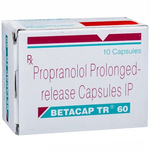ropnol
Introduction to Ropnol
Ropnol is a medication primarily used to manage certain heart and blood pressure conditions. It is known for its ability to help control heart rate and reduce blood pressure, making it a valuable tool in treating cardiovascular issues.
Composition of Ropnol
Ropnol contains the active ingredient Propranolol, which is a type of medication known as a beta-blocker. Beta-blockers work by blocking specific signals in the body that can increase heart rate and blood pressure.
Uses of Ropnol
- Lowering high blood pressure
- Reducing chest pain (angina)
- Controlling irregular heartbeats
- Protecting the heart after a heart attack
- Preventing migraines
- Reducing shaking from essential tremor
- Treating specific heart valve problems
- Managing a rare tumor of the adrenal gland
Side Effects of Ropnol
Common Side Effects:
- Tiredness
- Dizziness
- Lightheadedness
- Stomach upset
- Nausea
- Diarrhea
- Mood changes such as depression, fatigue, or irritability
Serious Side Effects:
- Severely slow heart rate
- Dangerously low blood pressure
- Heart rate that slows too much
Precautions of Ropnol
Before taking Ropnol, it's important to inform your doctor about any other medications you are taking, as well as any pre-existing health conditions. Ropnol can interact with other drugs and may not be suitable for individuals with certain medical issues.
How to Take Ropnol
- Take Ropnol orally, as prescribed by your doctor.
- The dosage will depend on the specific condition being treated.
- For high blood pressure, the typical daily dose ranges from 120mg to 240mg.
- For chest pain, the usual dose is between 80mg and 320mg daily.
- Follow your doctor's instructions carefully and do not adjust the dose without consulting them.
Conclusion of Ropnol
Ropnol is a versatile medication used to manage various heart and blood pressure conditions. While it offers significant benefits, it's essential to use it under medical supervision to avoid potential side effects and interactions. Always follow your healthcare provider's guidance when taking Ropnol.
Similar Medicines
Available in 4 variations

Ropnol 60mg Tablet SR 10s
Ropnol 60mg Tablet SR 10s
strip of 10 tablet sr

Ropnol 20 Tablet
Ropnol 20 Tablet
strip of 10 tablets

Ropnol 20mg Tablet SR
Ropnol 20mg Tablet SR
strip of 10 tablet sr

Ropnol 40mg Tablet SR
Ropnol 40mg Tablet SR
strip of 10 tablet sr
Related Faqs

I have been on Indomethacin for several months. Will it be a problem if I start taking Betacap along with it?
Yes, Indomethacin may interfere with the working of Betacap and make it less effective. As a result, your blood pressure may increase. Speak to your doctor who will prescribe you a different medicine to control blood pressure.

My doctor has prescribed Betacap even though my blood pressure is within normal limits. Is it because of the chest pain that I complained of?
Yes, it is possible that your doctor prescribed Betacap for chest pain (angina). Betacap is a beta-blocker which is used to lower high blood pressure, prevent angina, treat or prevent heart attacks or reduce your risk of heart problems following a heart attack. Betacap is also used to treat irregularities in heartbeat, including those caused by anxiety, essential tremor (shaking of head, chin and hands). It also prevents migraine headaches, overactive thyroid (thyrotoxicosis and hyperthyroidism) and bleeding in the food pipe caused by high blood pressure.

My doctor has prescribed Manoprolol even though my blood pressure is within normal limits. Is it because of the chest pain that I complained of?
Yes, it is possible that your doctor prescribed Manoprolol for chest pain (angina). Manoprolol is a beta-blocker which is used to lower high blood pressure, prevent angina, treat or prevent heart attacks or reduce your risk of heart problems following a heart attack. Manoprolol is also used to treat irregularities in heartbeat, including those caused by anxiety, essential tremor (shaking of head, chin and hands). It also prevents migraine headaches, overactive thyroid (thyrotoxicosis and hyperthyroidism) and bleeding in the food pipe caused by high blood pressure.

Can I stop taking Propsan as my chest pain is under control?
No, you should not stop taking Propsan suddenly because that may worsen your angina or may cause a heart attack. Tell your doctor and if there is a need to stop Propsan, your doctor will reduce your dose gradually over a period of a few weeks.
Related Posts

1:15
What Happens During an Angina Attack? Learn the Warning Signs and Symptoms!

1:15
Treatment for Depression That Will Finally Give You Hope!

1:15
The Dark Side of Motherhood: Postpartum Depression

1:15
Reduce Stress and Anxiety with Raspberry Leaf Tea

1:15
Is Your Blood Pressure Too Low? Causes and Symptoms to Know

1:15
How Can You Naturally Boost Your Child’s Immunity and Keep Them Healthy?

1:15
What Are the Best Foods to Keep Your Kid’s Brain Healthy?

1:15
How Does Vitamin D3 Deficiency Affect Your Body? Shocking Symptoms Revealed!

1:15
Why Is Calcium Important for Kids? Common Deficiency Symptoms You Shouldn’t Ignore!

1:15
How to Increase Your Child’s Weight Naturally? Healthy Diet Tips for Parents!





















.svg)
